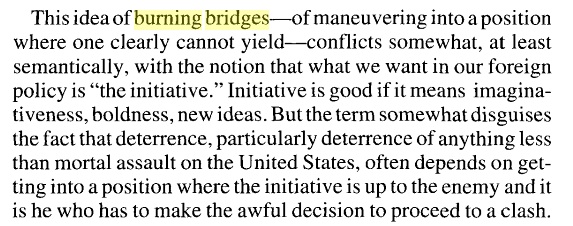Some prominent liberal commentators are upset that Treasury and the Fed have ruled out the “$1 trillion coin” option. The basic reasoning: the declaration weakens the President’s bargaining position and forecloses a way that it could have ameliorated the consequences of a failure to extend the debt limit.
I suspect that the reason for the declaration was sincere: key players believe that it is neither legal nor prudent. The second is Ezra Klein’s position. He also notes that the decision coheres what the administration has been arguing all along:
The administration’s position is that raising the debt limit is Congress’s responsibility until the day that Congress votes to make it the White House’s responsibility, which is a resolution the Obama administration would happily accept. Until then, White House officials say, they will not negotiate over the debt ceiling, and if congressional Republicans attempt to use it as leverage, then the consequences will be theirs to bear. As White HOuse Press Secretary Jay Carney put it, “there are only two options to deal with the debt limit: Congress can pay its bills or they can fail to act and put the nation into default.”
And, in fact, bargaining theory suggests that this move strengthens Obama’s hand. As Thomas Schelling discusses in his classic work, Arms and Influence:

The “$1 trillion coin” option was a metaphorical bridge — and a rather shaky one at that. It shifted the initiative to Obama and away from the GOP. Without the option, the GOP’s failure to raise the debt limit amounts to the “final move” that risks bringing the economy down. With the option, Obama would then have to decide whether to default or issue the coins. And if markets and consumers didn’t react well to the coin, the economy might suffer regardless.
This is a lose-lose scenario: Obama takes the blame whether or not the gambit works. If it works, the GOP gets to attack him for a “power grab” and argue that he never negotiated in good faith. If it fails, then resulting economic problems are all about the coin.
UPDATE: see also Josh Marshall, who is talking sense. UPDATE II: and see Stan Collender.
Daniel H. Nexon is a Professor at Georgetown University, with a joint appointment in the Department of Government and the School of Foreign Service. His academic work focuses on international-relations theory, power politics, empires and hegemony, and international order. He has also written on the relationship between popular culture and world politics.
He has held fellowships at Stanford University's Center for International Security and Cooperation and at the Ohio State University's Mershon Center for International Studies. During 2009-2010 he worked in the U.S. Department of Defense as a Council on Foreign Relations International Affairs Fellow. He was the lead editor of International Studies Quarterly from 2014-2018.
He is the author of The Struggle for Power in Early Modern Europe: Religious Conflict, Dynastic Empires, and International Change (Princeton University Press, 2009), which won the International Security Studies Section (ISSS) Best Book Award for 2010, and co-author of Exit from Hegemony: The Unraveling of the American Global Order (Oxford University Press, 2020). His articles have appeared in a lot of places. He is the founder of the The Duck of Minerva, and also blogs at Lawyers, Guns and Money.


0 Comments